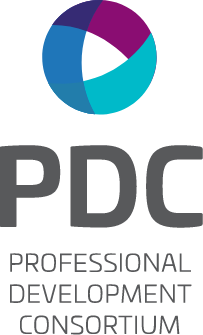You are here
Maximizing Engagement Through Effective People Management: A Call to Action
June 20, 2024
Author: Tracy LaLonde
Chief Joychiever
In the competitive, high-octane world of law firms, the concept of engagement often gets overshadowed by billable hours, client demands, and the relentless pursuit of excellence. Yet, beneath this facade of unwavering dedication lies a critical, often overlooked ingredient to a firm's success: the impact of how someone is managed on engagement.
While we universally acknowledge the importance of good management, an unsettling paradox exists: few firms invest the necessary resources to train their partners to become not just effective, but superior people managers. It's high time we address this discrepancy with the urgency and seriousness it deserves.
A staggering statistic from Gallup reveals that 70% of employee disengagement can be attributed to poor people management. This figure is not just a number; it’s a glaring indictment of missed opportunities and potential. The implications are profound, influencing everything from job satisfaction and productivity to retention rates and the bottom line. Effective people management has the power to transform these aspects positively, turning what might be seen as pitfalls into stepping stones for growth and fulfillment.
Consider the constant rush to meet deadlines, a common scenario in any law firm. Are team members perpetually caught in a cycle of urgency, diminishing the quality of their work and their mental well being? Good management practices can address this by ensuring realistic timelines and fostering an environment where team members can thrive under pressure rather than just survive. This not only improves the quality of work but also enhances job satisfaction.
The issue of being “always on” further compounds the pressures faced by legal professionals. The expectation to be immediately responsive and perpetually available takes a toll on individuals’ stress levels, leading to burnout. Effective managers can mitigate this by being proactively transparent about responsiveness and availability expectations, resisting the impulse to treat everything as urgent, and better managing client expectations.
Engagement is also deeply tied to the opportunities team members have to indulge in work they are passionate about. Are your team members pigeonholed into roles that don't play to their strengths or interests? Superior management involves recognizing and aligning individuals’ talents and interests with their responsibilities, thereby fostering a culture of growth and satisfaction.
Training is another realm where management can make a significant impact. Often, team members forego valuable training opportunities due to guilt or the fear of falling behind on their workload or not wanting to appear unavailable. Effective leaders must cultivate an environment that values continuous learning, making it clear that investing time in personal and professional growth is not just encouraged but expected.
The autonomy to make decisions is another critical facet of engagement. In the rigid hierarchies characteristic of many law firms, how much autonomy do team members really have? Empowering associates and employees to make independent decisions enhances their sense of ownership and involvement in the firm’s success. This empowerment can transform a stifling workplace into an innovative and dynamic environment.
Feeling valued and heard is arguably the cornerstone of engagement. Do your team members feel their contributions matter? Are they confident that their voices are heard? Strong managers ensure that every member of the team feels valued, not just for their hours worked or billed but for their unique perspectives and ideas. This sense of belonging can significantly enhance engagement and loyalty.
Finally, the impact of one's work both within the firm and with clients cannot be understated. Team members should be reminded of the value their work brings to the table, reinforcing their role in the firm's broader goals and successes. Recognizing and celebrating these contributions fosters a sense of achievement and purpose.
We must proactively acknowledge that the law itself is only as sound as those who practice it, and the health of a legal practice mirrors the involvement, commitment and enthusiasm of its legal practitioners. Leadership and people management skills are muscles that require as much training and exercise as the intellectual rigor demanded by complex legal challenges.
Now is the moment to shift paradigms and place managerial excellence on the same pedestal as legal expertise. Great managers are made, not born. The investment made today in creating extraordinary managers is the bedrock of your firm’s prosperity tomorrow.
Tracy LaLonde helps lawyers and law firms generate better engagement through effective people management. With over 30 years of experience in training, consulting, and professional development, Tracy is on a mission to change how law firms engage with their workforce. She may be reached at info@joychiever.com.


